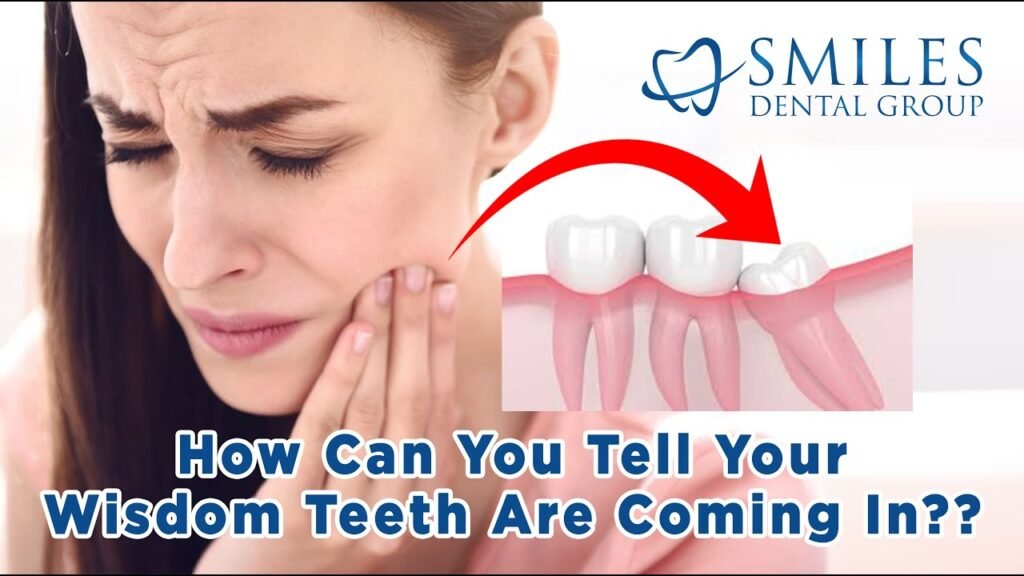Signs of Wisdom Teeth: How to Know If You Have Them

Are you experiencing discomfort in the back of your mouth? It could be your wisdom teeth trying to make an appearance. Wisdom teeth, also known as third molars, typically emerge in your late teens or early twenties. In this article, we will discuss the signs and symptoms of wisdom teeth eruption, and how to know if it's time to see a dentist for potential extraction.
How can you tell if your wisdom teeth are coming in?
If you notice difficulty opening your mouth or experience pain while chewing, it could be a sign that your wisdom teeth are coming in. Other common symptoms include swollen gums, jaw stiffness, and a bad taste in your mouth. Regular dental check-ups can help monitor the progress of your wisdom teeth and prevent any complications that may arise.
Keeping up with good oral hygiene practices, such as brushing and flossing regularly, can also help alleviate discomfort as your wisdom teeth come in. It's important to consult with your dentist if you suspect your wisdom teeth are erupting, as they can provide guidance on the best course of action to ensure your oral health remains in top condition.
How can one tell if they have a wisdom tooth?
If you're experiencing irritation in your gums and swelling behind your second molars, you may have your wisdom teeth coming in. Additionally, if you're feeling a dull ache near the back of your jaw, it could be a sign that your wisdom teeth are growing. Keep an eye out for these symptoms to know if your wisdom teeth are making an appearance.
When do wisdom teeth typically emerge?
Your wisdom teeth are your final set of adult teeth to emerge, typically making their appearance between the ages of 17 and 25. However, it's important to note that not everyone will develop wisdom teeth. For those who do, it is common for these teeth to cause discomfort or complications, leading to the need for removal to maintain optimal oral health.
If you find yourself experiencing pain, infection, or other oral health problems related to your wisdom teeth, it may be necessary to have them extracted. Wisdom teeth removal is a common procedure that can help alleviate discomfort and prevent further complications. Consulting with a dental professional can provide insight into the best course of action for your specific situation.
Remember, the eruption of wisdom teeth is a natural part of the dental development process. While they may not always cause issues, it is crucial to monitor their growth and address any concerns promptly to ensure the health and wellbeing of your smile.
Decoding Wisdom Teeth: Spotting the Telltale Signs
Decoding wisdom teeth can be a crucial task in maintaining optimal oral health. From persistent pain and swelling to difficulty opening the mouth fully, spotting the telltale signs of problematic wisdom teeth is essential for timely intervention. By being aware of common symptoms such as jaw stiffness, bad breath, and even headaches, individuals can seek professional advice and prevent potential complications associated with impacted wisdom teeth. Regular dental check-ups and early detection can help address issues before they escalate, ensuring a healthy and pain-free smile for years to come.
Wisdom Teeth 101: Recognizing the Symptoms
Wisdom teeth, also known as third molars, typically appear in your late teens or early twenties. Recognizing the symptoms of impacted wisdom teeth is crucial in preventing potential complications. Symptoms may include pain, swelling, difficulty opening your mouth, and even a bad taste or odor in your mouth. If you experience any of these signs, it is important to consult with your dentist to determine the best course of action. Early detection and treatment can help avoid further issues down the road.
Are Your Wisdom Teeth Causing Discomfort? How to Identify Them
Are you experiencing discomfort in the back of your mouth? It could be your wisdom teeth causing the issue. These third molars typically emerge in late adolescence or early adulthood and can cause pain, swelling, and misalignment of the other teeth. If you are experiencing these symptoms, it is important to consult with a dentist to determine if your wisdom teeth need to be removed. By identifying the signs early on, you can prevent further complications and maintain good oral health.
In summary, recognizing the presence of wisdom teeth can involve monitoring for symptoms such as pain, swelling, and difficulty with proper alignment. Consulting with a dentist for a thorough examination and X-rays is crucial in determining if these third molars are present and if they may require extraction. By staying informed and proactive about your oral health, you can effectively manage any potential issues related to wisdom teeth and ensure a healthy smile for years to come.